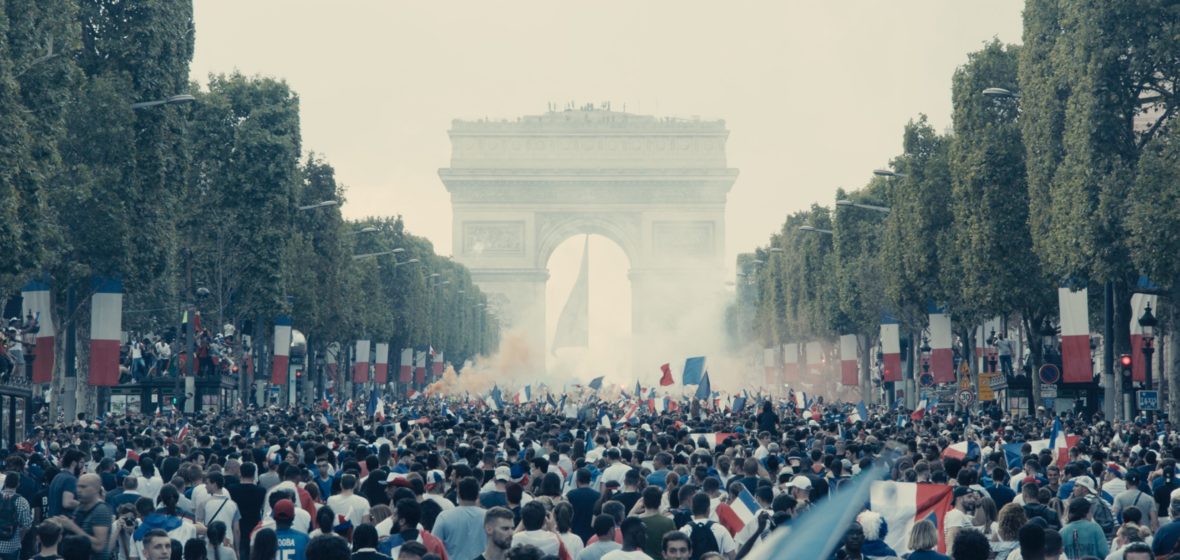Rating: ****
Ladj Ly’s explosive directorial debut starts the day of the 2018 World Cup final. France is about to lift the trophy for the second time in history uniting the entire country in celebration. The rich, the poor, the immigrants, proudly chanting La Marseille and marching up and down the Champs-Élysées against that ideological French symbol of unity that is the Arc de Triomphe. The euphoria is short-lived, though. The next day Liberté, égalité, fraternité is again a debatable concept.
Les Misérables follows the first day of Stephane (Damien Bonnard) in the anti-crime brigade of Montfermeil. Once the suburb where Victor Hugo wrote, and partially-set, the eponymous novel, it’s now the location of one of the most infamous social estates in Paris home to the new destitute, the poor, the violent gangs. So, like it was in XIX century, with added racial tensions to boost.
Stephane is joined by experienced police officers Chris (Alexis Manenti) and Gwada (Djebril Zonga), who revel in showing the rookie the harsh reality of the neighbourhood. Through his eyes, we learn the ins and outs of the area, witness the damage built by generations of corruption and police abuse. It’s only a matter of time until tensions escalate into a moment of extreme police violence against a defenceless child, recorded by a camera drone. This leads into a manhunt as the three officers try to erase the footage before it’s leaked, aware that the racial powder keg of the Parisian social unrest only needs a small spark to blow into all-out riot.
Basing it off his own experiences observing the riots of 2008, Ly, who grew up in Montfermeil from Malian parents, shoots Les Misérables with a lot of care for the people that live there. He has no problems in focusing his anger to the forces of authority and corrupt community leaders but leaves the community unscathed. Some called Les Misérables the new La Haine but apart from the setting in the banlieue, against a backdrop of escalating social tensions, there aren’t a lot of similarities between the two films. To start Ly chooses a colourful palette and very few bouts of cinematic poetry. He effortlessly captures the beauty in the dirt and vivid spirit of the community, without hiding the harsh reality. The message about the long-lasting consequences of institutionalised bigotry is driven across to the last frame when Victor Hugo’s most poignant quote wraps it up perfectly.
As much as I would’ve preferred a stronger cinematic punch, it is undeniable Ly’s approach works. Maybe it’s because it doesn’t distract from its central point, or maybe it helps to bring the audience down to his reality; not one of made-up grittiness but the one in which the citizens of Montfermeil live. This makes the last 15 minutes especially striking. A violent stand-off is played with humanity and catharsis for justice. The last shot, similar to a certain scene from City of God, lingers with no resolution to let the discussion continue way after the credits are gone. That kind of candour, so uncommon in new filmmakers, sets Ladj Ly apart.
Les Misérables will be in cinemas nationally 27 August




